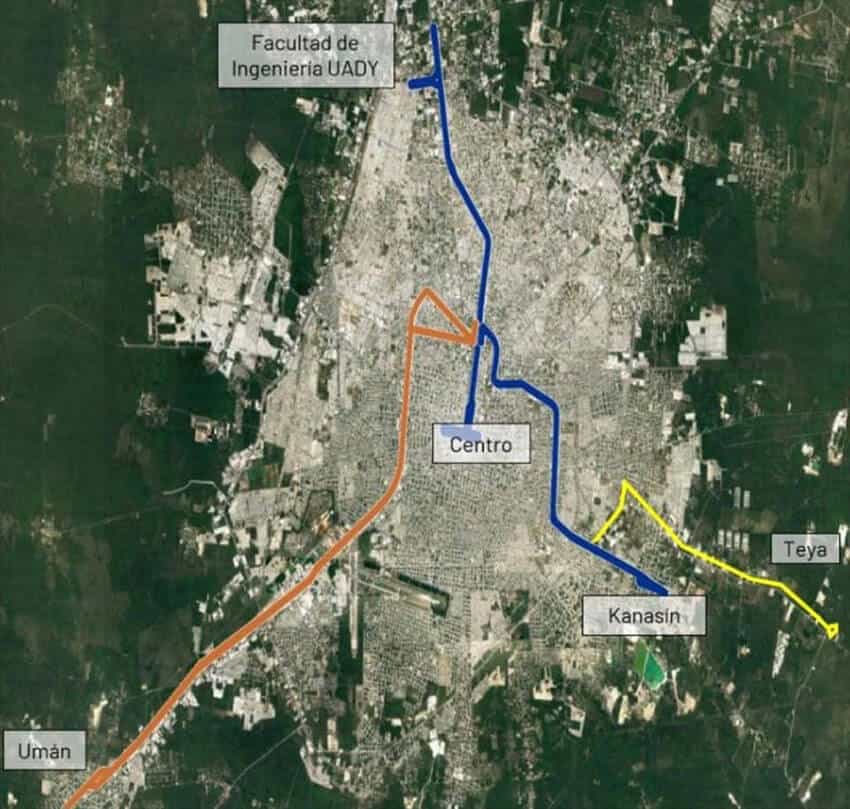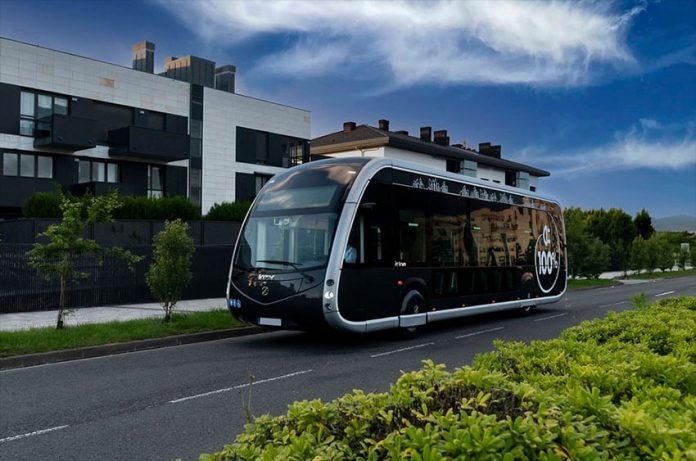As many as 30 electric buses that look like European-style tram cars will be up and running on the streets of Mérida and two nearby municipalities by December 2023, Yucatán Governor Mauricio Vila said at a conference Thursday.
The plan is for the new IE-Tram to connect Mérida’s Centro Historico with Kanasín to the southeast, Umán to the southwest and the Yucatán Autonomous University Faculty of Engineering building to the north.
The buses will be the first in Mexico with zero emissions, Vila said in a presentation at the Smart City Expo LATAM Congress in Mérida, an event highlighting ideas, projects and actions being implemented throughout Latin America. He also said it would be the first electric route in the south-southeast of Mexico, and the only one of its kind in all of Latin America using both high tech and abandoned train tracks.
The fleet will connect 137 neighborhoods, and its three routes will cover approximately 100 kilometers. In places, it will run on paved-over tracks, and in other parts, it will have dedicated lanes on roadways. It was presented as an electric vehicle that will glide gently along the designated routes; its batteries will be charged at stations along the way.

“It will be a bus with the benefits of a streetcar, the flexibility of a bus that can carry up to 105 passengers,” Vila said. The tram-buses, which will be part of the Va y Ven public transportation system in Mérida, are produced at a plant in Zaragoza, Spain, which Vila visited in October 2021.
He said the vehicles will come equipped with USB cellphone chargers, Wi–Fi, braille buttons, security systems for speed control in congested areas, a real-time geolocator, and information about upcoming stops and destinations. Each unit will measure 12 meters long and will have four handicap-accessible sliding doors, large aisles and electronic ticketing technology.
Yucatan Magazine reported that reaction to the announcement was mixed. It was favorable on the government’s social media channels, but others said the project was coming at the expense of necessities like well-paved roads and safe sidewalks, and one editor writing on EcoYucatán.com wondered if the financing is real or imaginary.
Vila described the project as a public-private initiative, with 60% (2.8 billion pesos) of the budget, for the units and infrastructure work, contributed by the state government. The federal government will kick in 23% and private interests 16%, Vila said. Costs for riders were not discussed.
The new system’s capacity will be 500,000 people a week, reportedly 20% of Mérida’s public-transportation riders. Mérida, Kanasín and Umán are part of a metro area with 1.2 million people.
“Kanasín is the main source of people who come to work every day in the city of Mérida,” Vila said, noting that route will be the first one activated. All three routes, he added, have “high influx during peak hours that affect the operation of the entire transport system.”
With reports from Yucatán Magazine and Diario de Yucatán
